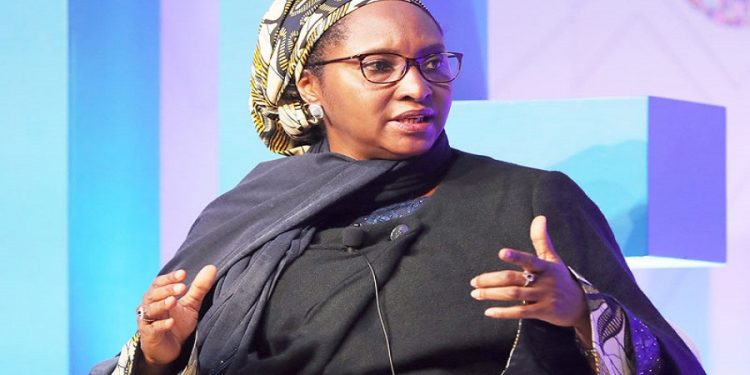Nigeria to borrow again to finance N6.258 trillion 2022 budget deficit
The Federal Government has given an indication of its readiness to borrow from both local and foreign sources to finance the N6.258 trillion deficit in the proposed 2022 budget.
This is just as the Federal Executive Council (FEC) has approved the 2022 Appropriation Bill with an aggregate expenditure of N16.39 trillion.
This disclosure was made by the Minister of Finance, Budget and National Planning, Zainab Ahmed, during a press conference after the Federal Executive Council (FEC) meeting presided over by President Muhammadu Buhari in Abuja, saying that this will aid the funding of the Federal Government’s infrastructure projects.
What the Minister of Finance, Budget and National Planning is saying
Ahmed during the press briefing said, “Government has been borrowing before this administration and continues to borrow and it is important that we borrow to provide developmental projects in the form of roads, rails, bridges, power and water for sustainable development in this country.
“If we just depend on the revenues that we get, even though our revenues have increased, the operational expenditure of government, including salaries and other overheads, is barely covered or swallowed up by the revenue.”
In her defence of the frequent borrowings by the federal government despite concerns raised from different quarters, the minister said the move is necessary to be able to build projects and to ensure they are developed on a sustainable basis insisting that the total size of the borrowing is still within healthy and sustainable limits.
She added, “Nigeria’s borrowing, has been of great concern and has elicited a lot of discussions. But if you look at the total size of the borrowing, it is still within healthy and sustainable limits.
This Also: Oxford University contributed £15.7 billion to the UK economy in 2018/19
“As of July 2021, the total borrowing is 23% of GDP. When you compare our borrowing to other countries, we’re the lowest within the region, lowest compared to Egypt, South Africa, Brazil, Mexico, the very lowest, and Angola.
“We do have a problem with revenue. Our revenues have been increasing. We just reported to Council that our revenues from non-oil have performed, as of July, at the rate of 111%, which means outperforming the prorated budget.”
What you should know
Recall that yesterday, the two chambers of the National Assembly approved President Muhammadu Buhari’s revised proposal of the 2022-2024 Medium Term Expenditure Framework (MTEF-FSP) and also okayed N16.39 trillion federal budget proposal for 2022.
President Muhammadu Buhari had a few days ago announced plans to present the 2022 Appropriation Bill to a joint session of the National Assembly on Thursday, October 7, 2021.
The early submission of the budget by the President is in line with the Federal Government’s effort to have the appropriation bill out on time and follow through with the January to December budget cycle.
Experts and many Nigerians have criticized the current administration’s accumulation of debt which sees a large chunk of the federal budget used for debt servicing.








